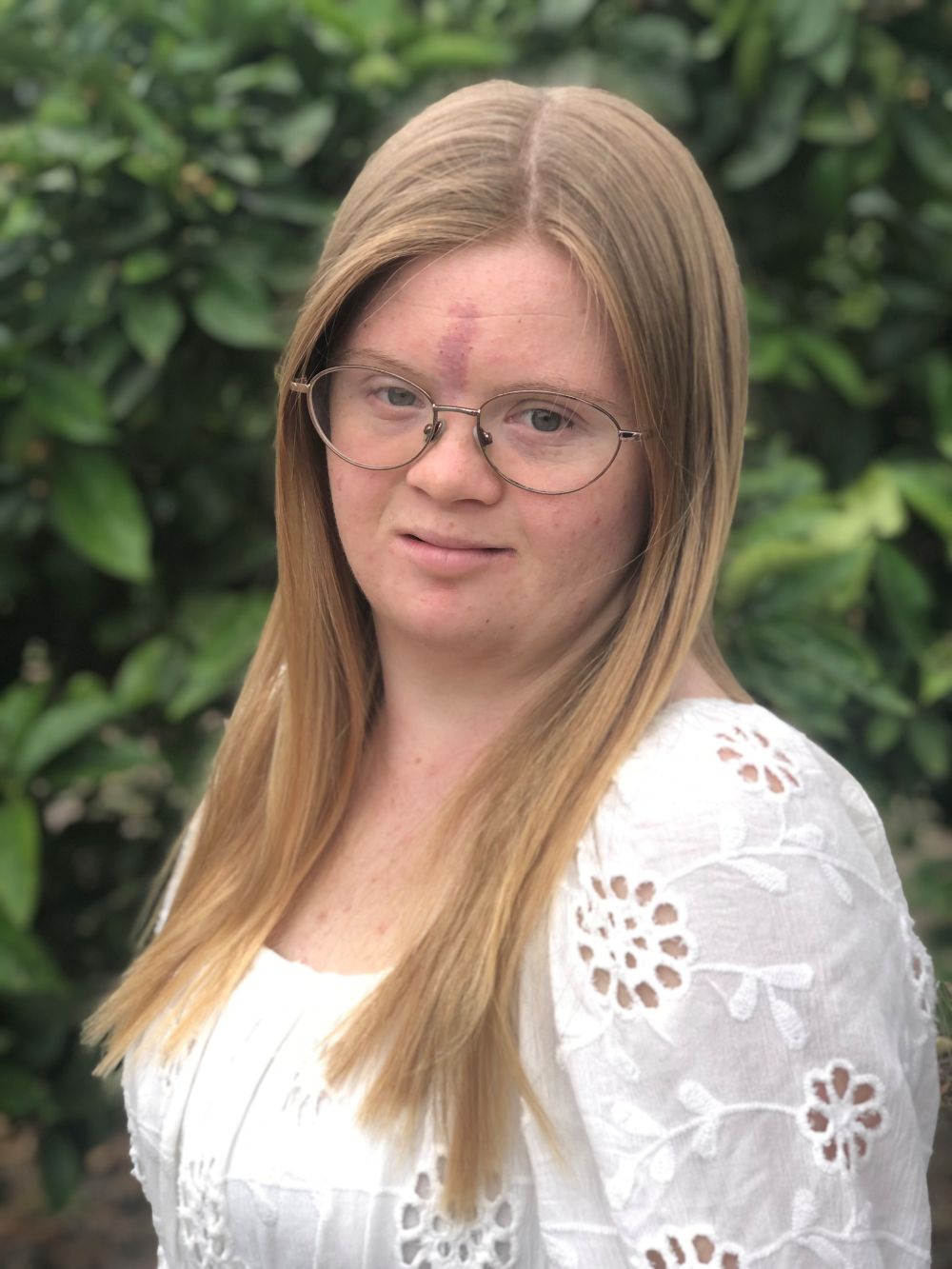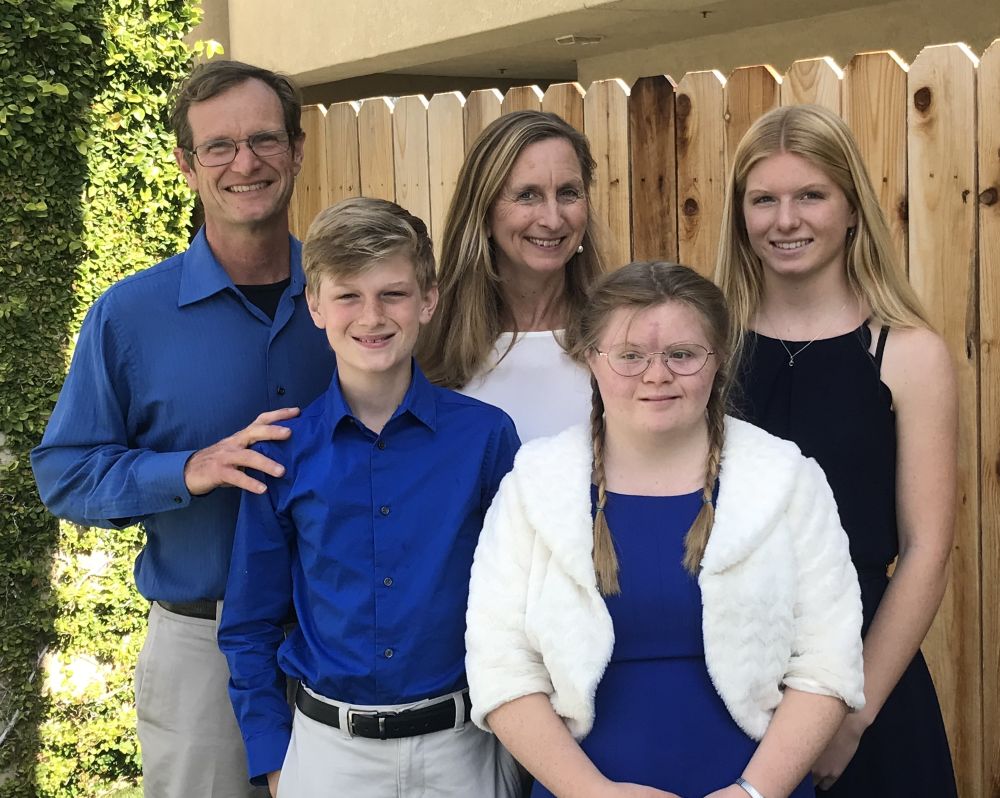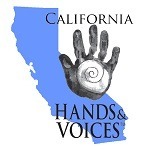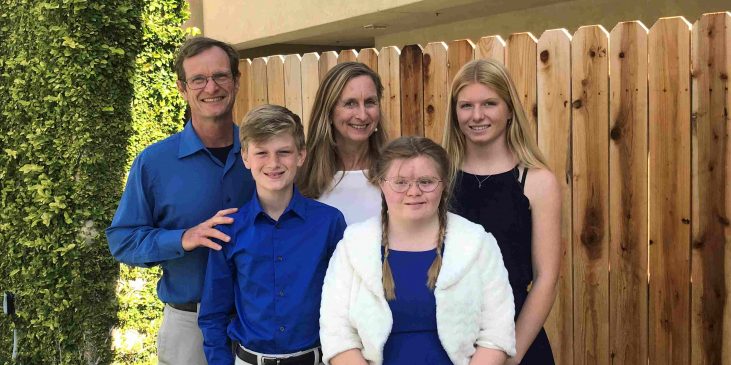By Myra Cullum, California Hands & Voices
“It’s okay to cry.” These were the words of the audiologist who had just performed the hearing test on my infant daughter. My baby presented as severely-profoundly deaf in both ears. But this was not news to me. I already knew something was different with this baby. She did not respond to my soothing lullabies like our first child. She did not comfort with my voice when she cried at night. I had to touch the crib or her before she quieted. She did not even awaken in her bouncy seat when my husband accidently dropped a mixing bowl, and it shattered on the kitchen floor a few feet from her. Oh, I knew. But there was no time to cry.
Years would pass before I took time to cry. I was in survival mode.

Katherine added another sweet girl to our growing family, but she came with a host of bad news. At her birth, the doctors and nurses were visibly shaken when they saw our child and recognized that she had Down Syndrome. We did not know prior to her birth, and we did not care. We were determined to love the children that God chose to give us. But the hospital staff looked very disturbed. Maybe they knew we were in for harder times than we could imagine and did not know how to tell us.
One doctor tried. With tears, he said, ” She may never be able to tie her shoes or brush her teeth. She may have severe mental retardation.” Was he trying to encourage us or scare us? We stared back at him undeterred. We took our precious baby home and began to love her.
What followed were years of hearing tests, hearing aid fittings, surgeries, doctor visits, therapists, and then many, many, many IEP meetings year after year. So much to juggle, so many emotional moments. It was survival mode for a long time.
But, in the midst of it all, we saw in Katherine a determination and tenacity for life that was inspiring. She did not give up. She would try a new challenge until she mastered it, whether it was balancing on a curb while walking along like her sister or tying her shoes.
When people would find out that Katherine was Deaf, they would say, “Oh, I’m sorry!” But we saw a courageous child who gave us nothing to be sorry about.
Her big sister who was only 15 months older had the best come-back as her toddler sister was the object of curious children at a local playground. When the other children could not get Katherine to respond and they started to get mean, Elizabeth retorted, “She’s Deaf, and I’m glad that she cannot hear you because you are being rude!”

Thankfully, about that time, someone invited us to a CAH&V playdate at a park. We were nervous with our novice level of signing to go to a playdate with other families of Deaf children, but we soon learned that “What works for your child is what makes the right choice.” Some folks were signing with their children exclusively, others spoke, some were doing both. During those early years, we bonded with friends that we still see at Deaf events!
CAH&V Family camps, Christmas socials, and DHH playdates equipped our family with tools and a deeper understanding of how to raise our child with a sense of community and belonging in a challenging world where she would mostly be isolated. Katherine opened our world to a whole new way of seeing things and experiencing life.
She has been a beautiful part of our family, bringing joy and smiles and hugs.
Despite that first doctor’s grim prediction, Katherine has not only survived, she has thrived. When she was young, she learned to tie her shoes, brush her teeth, get dressed, and even swim! When she graduated from High School, she was asked to sign the National Anthem at Graduation! There stood our daughter, who started life so many obstacles to leap, on the field in front of thousands of people, proudly signing our National Anthem representing our country, the Deaf community, herself, and all those who helped set her up for success in life.

